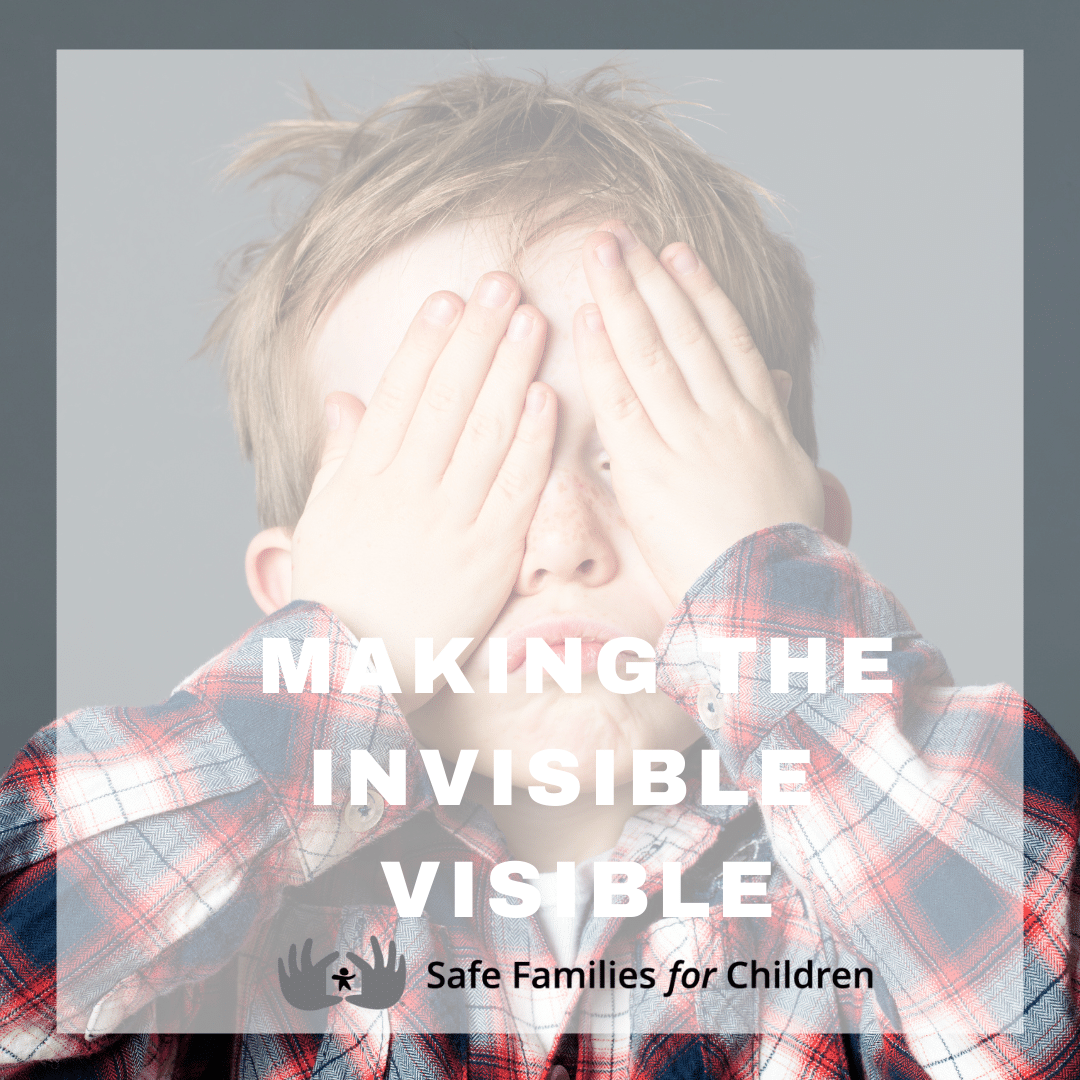In Matthew chapter 25, we are reminded by Jesus that there is a danger for those in greatest need to become invisible to us. The disciples responded in Matthew 25, “when did we see you….”
It is easy for most of us to be moved to action when we hear children in harms’ way. It is a little more challenging for us to be moved by compassion for the parents who are struggling to care for their children. This becomes even more problematic when they are referred to the child welfare system and they are under investigation. Many families, even when they are doing ‘all the right things’ are just one crisis away from major instability in their lives. Under-resourced communities leave families in the throes of hospitalization, unemployment, incarceration, substance abuse recovery, and other crises related to poverty without the resources and support to care for their children.
We believe that parents generally want the best for their children. They may become temporarily overwhelmed and unable to care for their children, however, with support, they can return to a level of good-enough parenting. When parents are empowered, appreciated, respected, etc., it creates hope and hope leads to improved well-being. The well-being of children is closely tied to the functioning and well-being of parents. What sets Safe Families apart is that we love kids but also redeem parents because that’s what kids want the most, to be back with mom and dad.
To help parents get on their feet, we must work to destigmatize parents who are struggling and on the edge of foster care. We avoid mental models of parents being inadequate and incapable, and we oppose the pervasive belief in society and child welfare systems that parents involved with the child welfare system are “bad, inadequate, and incapable.” This narrative is problematic as it continues to isolate parents and can result in feelings of hopelessness and discouragement, inadequate service, and unrealistic expectations.
In Safe Families, parents are deemed capable and “good enough” until proven otherwise. Focusing on a parent’s strengths not weaknesses leads to stronger outcomes. Taking this approach focuses our efforts on supporting parents and helps us, as a movement, pause before stigmatizing families who come under investigation. It strengthens our compassion for parents who are struggling, even when their actions often create their difficulties. So… we naturally love and care for children but simultaneously befriend and support their parents. It’s often not as easy as it sounds.
Dr. Dave Anderson, SFFC Founder

